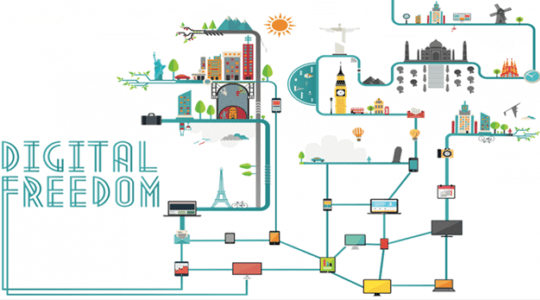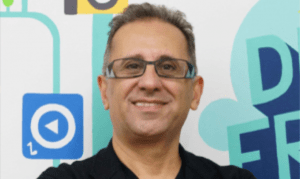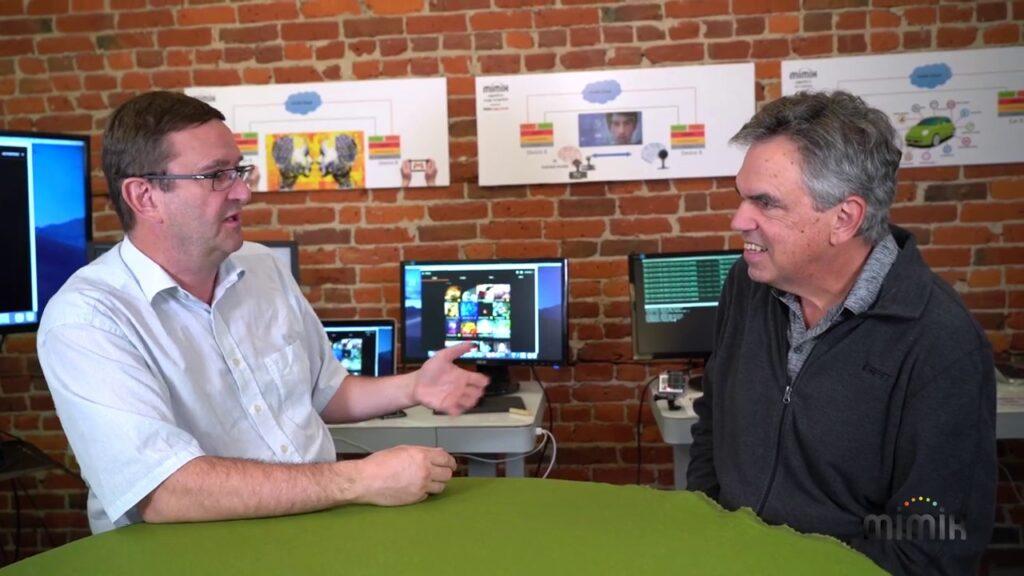Since its inception, internet has been an open platform to access and share information for everyone, everywhere. Initially, it was envisioned to be peer-to-peer with no dependency on any central entities. Today, internet is under attack. At mimik, we are especially concerned with the recent FCC decision to roll back net neutrality protections. With the FCC ruling, communication networks in the US have become more open to abuse by large corporations. Internet Service Providers (ISPs) can control the content and applications used on the internet. In effect, FCC has handed the keys to our open and free internet to major telecommunications companies. These companies will have the power to decide what content runs over “their” networks. They can decide to give preference to one content over another.
An attack against the internet is an attack against our entire social fabric. Open internet has improved the lives of billions of people. Life and business without internet is no longer imaginable. Treating all internet traffic equally has enabled innovative companies to thrive and compete against established corporations with new often disruptive products and services. Now, the FCC has decided to impede progress and give unprecedented power to a few large corporations. I believe it is fair for ISPs to charge us based on how much data we use or the raw speed of the connection but they should not have any say about the application, content or services that are provided over their pipe.
Without net neutrality, ISPs can restructure how the Internet works. They will practically own the internet by controlling the applications and content that run over their networks.
Decentralization is the future of the Internet
It is alarming that the FCC has decided to approve a policy that hampers progress and economic opportunity and grants too much control over the internet to a few large corporations. We must fight to restore net neutrality.
Furthermore, we should also be aware that there are other dangerous trends that are putting Internet at risk. Tech giants are consolidating through Internet acquisitions and gaining too much control. For instance, Facebook is dominating the messaging and social media markets since acquiring WhatsApp and Instagram and as a result has become a social media giant with too much control. Amazon is dominating the central cloud with some competition from a couple of large corporations. Google is dominating discovery of virtual and physical goods and services and has too much control over our everyday decisions. As a result, we have lost control over our personal data and content. We often post our data on third-party cloud services that manage how we access and share our data with others. We have little choice but to trust these third-party cloud services. Unfortunately, these conveniences and often “free” apps come with serious potential social and economic costs. First and foremost, our public profiles and personal content can be analysed by independent third parties in ways that compromise our privacy or harm us economically or socially. Also, our personal data is generally more valuable than what we receive in exchange as “free” apps.
The recent FCC ruling forces us to trust large corporation to not limit our access to the internet. Large service providers like Verizon and AT&T have promised to not abuse this power and are practically asking us to trust them. Here lies the problem: trust is a good thing but “necessity to trust” is dangerous and open to abuse by those we are forced to trust. Internet is the fundamental fabric for all businesses today and leaving the control in the hands of a few and forcing everyone else to trust them is both irrational and dangerous.
At mimik, we have been working to decentralize cloud computing and communications to achieve digital freedom. The FCC decision encourages us to work even harder to achieve our goal. Our technology will arm developers with a platform to unleash the collective power of all computing devices whether mobile phones or powerful central cloud servers and remove all unnecessary trust elements and middlemen.
We need to rethink how devices communicate data over the internet. In addition to securing net neutrality, we need to move towards a decentralized cloud computing architecture where every device can be a cloud server. Today, our devices connect to central cloud, which hosts most of the applications we use. Devices generally communicate with each other through the central cloud. We need to evolve to an architecture that leverages all our computing devices including devices that we own and control to form the future cloud fabric. This way, we will minimise the “need to trust”. Every device can act as a server; devices can connect directly at the application level without resorting to central trust elements; they can share resources and there is no fixed hierarchy in the communication flow. The result is a decentralized Internet that is more open and more private and at the same time potentially faster and more efficient.
Internet has removed many physical middlemen and transformed many industries such as travel, music, media, or hospitality. The central cloud architecture has created digital middlemen with advertising-driven and two-sided business models that have transformed the way we communicate and discover with the likes of Google and Facebook. The same happens with industries such as retail with Amazon, media with Netflix, transport with Uber and Lyft, and hospitality with Airbnb. The cost of these amazing conveniences has been a potential loss of control over our digital lives, contents and assets. We believe with cloud decentralization the role of digital middlemen will be turned upside down and a more open platform made up of all our computing devices will help us gain better control over our digital lives.
Net neutrality is the cornerstone of digital freedom as it will keep the pipes open to innovation and uninhibited development of new applications, content and services. Additionally, decentralization of the cloud is a necessary step towards creating a scalable and more efficient cloud fabric and removing unnecessary trust elements to strengthen our digital freedom.



